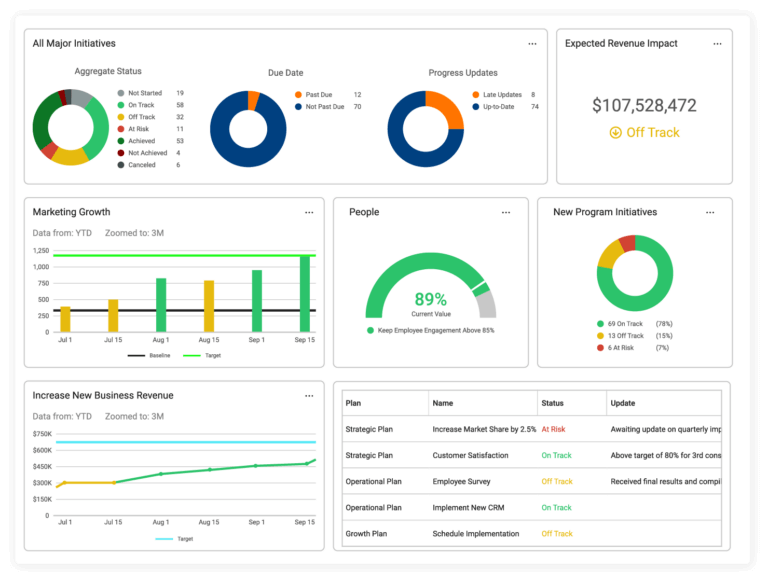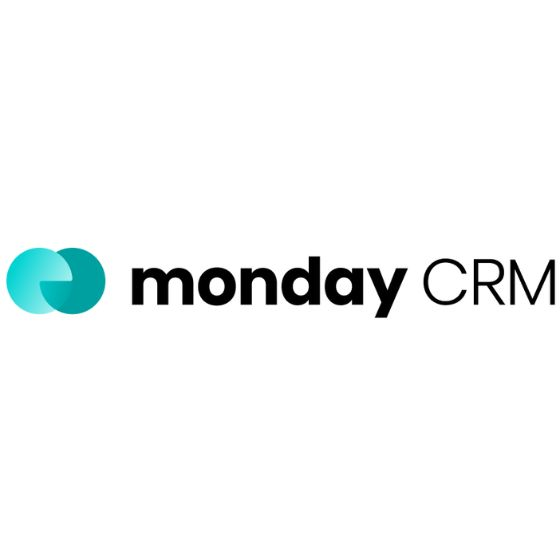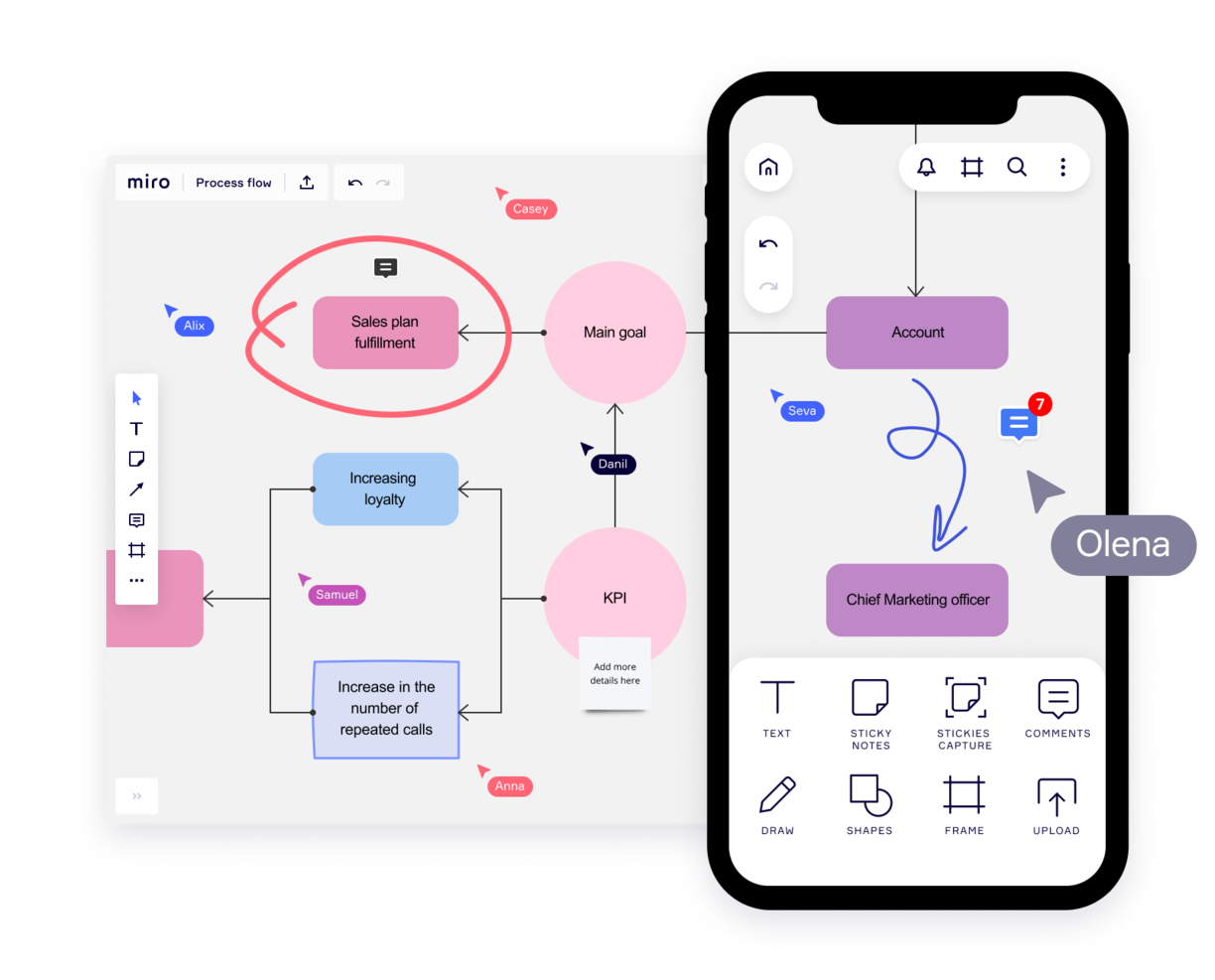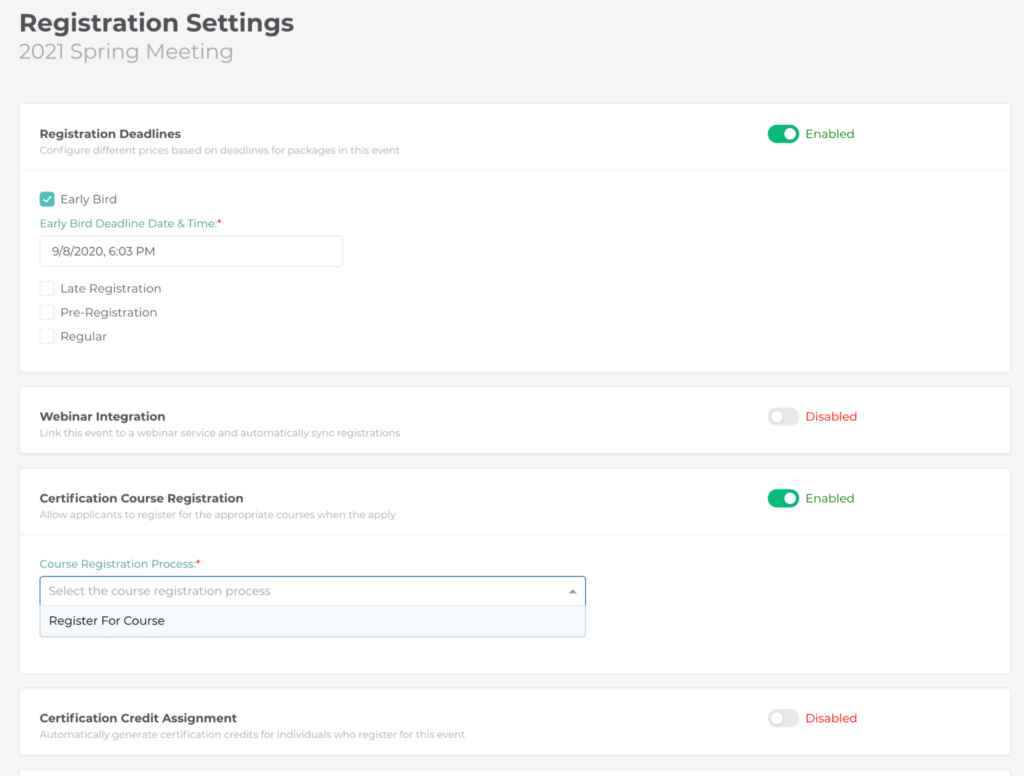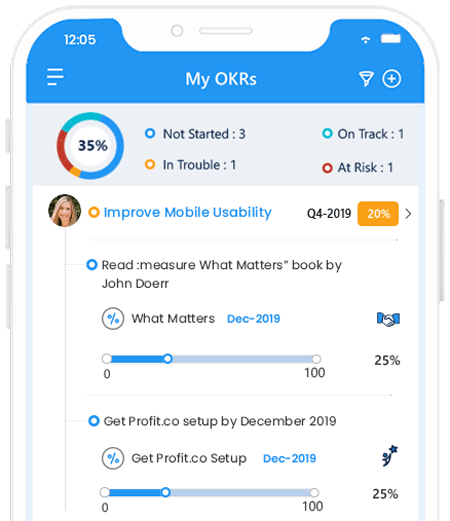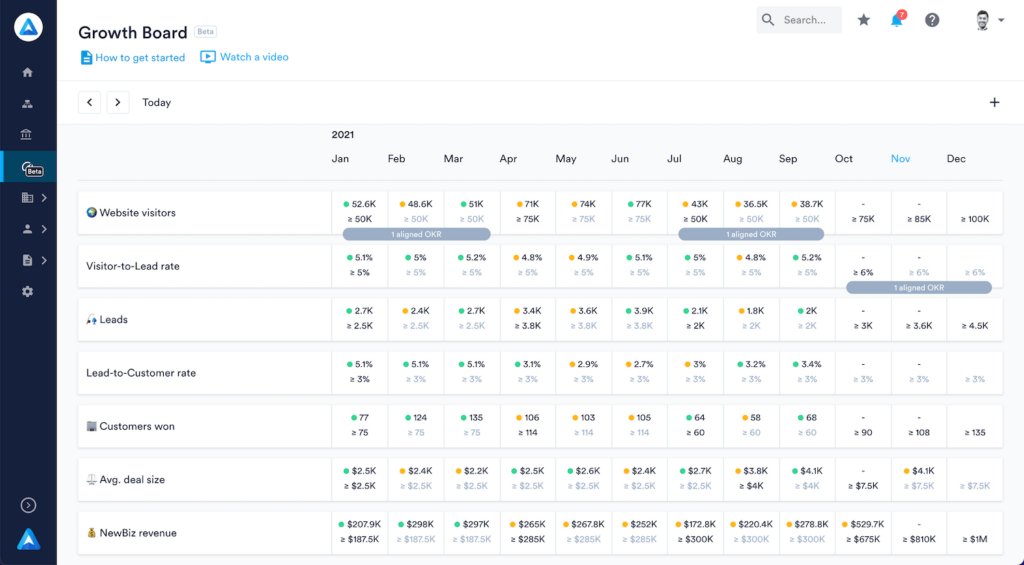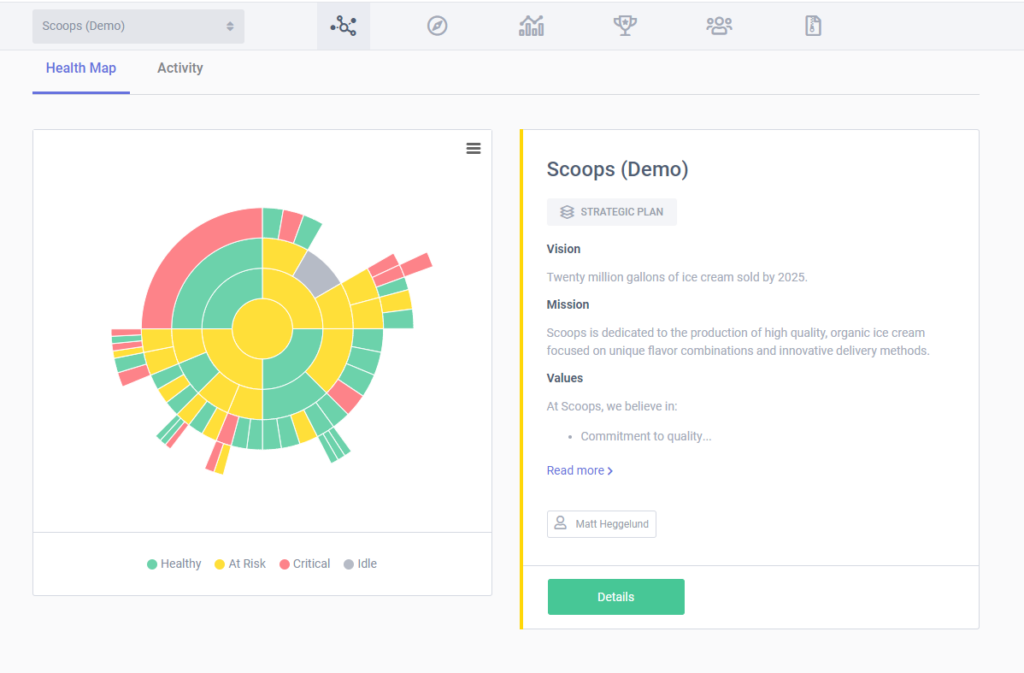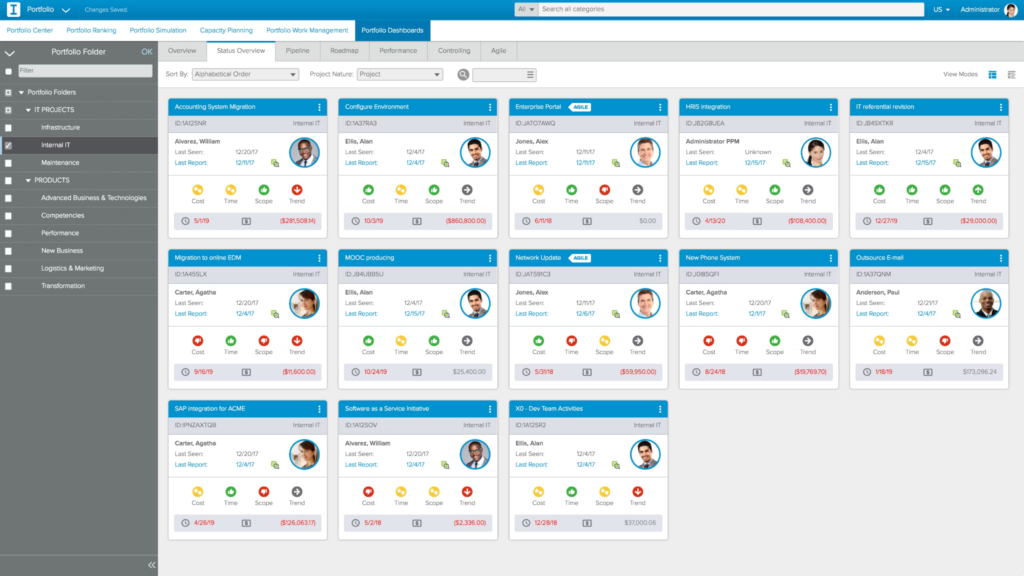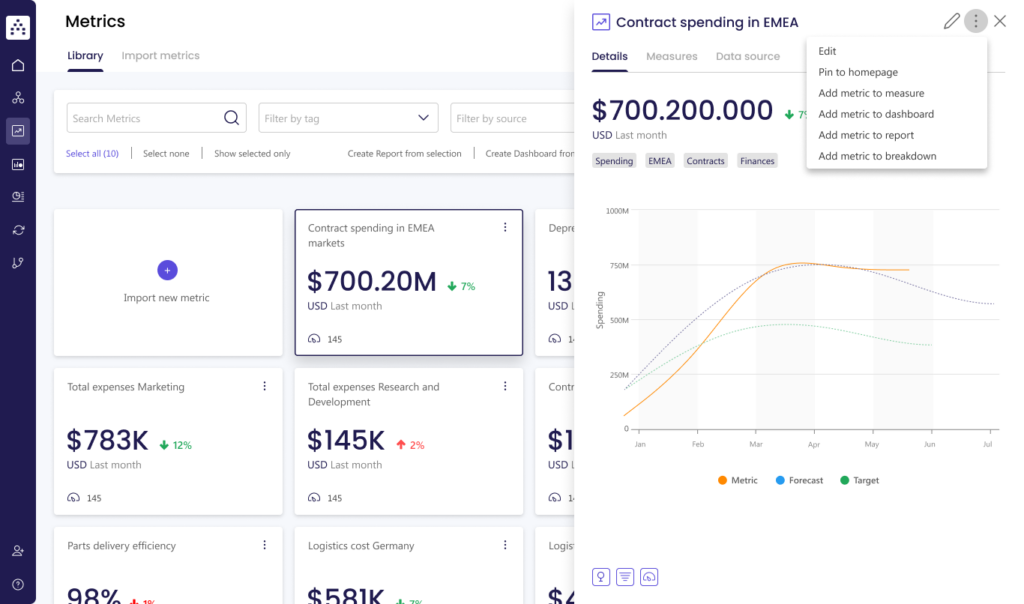10 Best Strategic Planning Software Shortlist
Here's my pick of the 10 best software from the 20 tools reviewed.
Our one-on-one guidance will help you find the perfect fit.
With so many different strategic planning software available, figuring out which is right for you is tough. You know you want to streamline the strategic planning process and ensure your business objectives are aligned with actionable strategies but need to figure out which tool is best. I've got you! In this post I'll help make your choice easy, sharing my personal experiences using dozens of different strategic planning tools with various teams and projects, with my picks of the best strategic planning software.
What Is Strategic Planning Software?
Strategic planning software is a digital tool that helps organizations in developing, implementing, and monitoring their strategic plans. It provides functionalities for setting goals, creating strategies, tracking progress, and analyzing business scenarios. This software integrates various aspects of strategic planning into a unified platform, facilitating organized and coherent planning processes.
The benefits of strategic planning software include enhanced alignment of organizational goals with actionable strategies, leading to improved business efficiency. It aids in data-driven decision-making, allowing businesses to adapt their strategies based on real-time insights and changing market conditions. The software also promotes collaboration among team members and stakeholders, ensuring cohesive and well-informed planning. Additionally, it provides effective tracking and monitoring of strategic objectives, helping organizations to stay on course and achieve their long-term goals.
Overviews Of The 10 Best Strategic Planning Software
Here you’ll find an in-depth review of each strategic planning software that highlights what it does best. Plus, you’ll find product screenshots, notable features, software integrations, pricing information, and the pros and cons of the software.
Best strategic planning software for the entire organization
AchieveIt is a cloud-based software that helps businesses with strategic planning, business development, and performance management. It provides tools for organizations in various industries, including state and local government, healthcare, education, commercial, banks and credit unions, manufacturing, and non-profit organizations.
Why I picked AchieveIt: Usually, businesses have several plans, such as marketing plans, business strategy, financial strategy plans, and so on. In that case, it's difficult to integrate and keep track of different plans. However, AchieveIt solves this problem with its one-stop solution. It lets users create unlimited plans, regardless of their planning method. It also offers a variety of views, including Kanban boards, Gantt, Dashboard, Tree, List, Embedded widgets, and multi-plan view.
Another good thing about this software is that it automates manual processes so that you can focus on creating plans. For example, it sends notifications and alerts to stakeholders when updates, changes, or critical milestones are approaching. It generates automated reports and provides interactive dashboards with real-time visualizations of key performance indicators (KPIs) and strategic metrics. This automation saves time on manual reporting and allows for quick access to critical insights.
AchieveIt Standout Features and Integrations
Standout features include performance tracking and analytics features that help organizations monitor the progress of their strategic initiatives. It provides customizable dashboards, reports, and visualizations that allow users to track key metrics, identify trends, and gain actionable insights.
Integrations are available natively through the software’s open API. Their implementation team will work with you directly to connect to other tools.
Pros and cons
Pros:
- Easy to learn and use
- Robust performance tracking
- Customizable dashboards and reports
Cons:
- Limited automations
- Limited reporting features
monday sales CRM is a customizable platform designed to centralize client interactions, automate sales workflows, and offer a comprehensive view of sales deals. It stands out for its extensive automation capabilities, robust data visualization, and user-friendly low-code/no-code environment, positioning it as a top choice for businesses seeking customizable automation solutions in their customer relationship management.
Why I Picked monday sales CRM: monday sales CRM offers extensive customization options that allow for tailoring the CRM to fit specific sales cycles and strategic planning needs. Its standout feature is the ability to centralize client communication and automate sales processes, which is critical for managing complex strategic plans. I believe Monday sales CRM is best for customizable automations due to its comprehensive data visualization and low-code/no-code platform, which enables teams to save time and focus on strategic decision-making.
Monday Sales CRM offers unique 'automation recipes'– customizable, pre-set automation rules that users can apply to streamline their sales processes. These recipes automate routine tasks like lead follow-ups, status updates, and notifications, significantly reducing manual effort.
monday sales CRM Standout Features & Integrations
Features include AI-assisted email composition, which aids in crafting relevant emails quickly, and email sync and tracking, which integrates email accounts with the CRM for direct management of communications and tracking of interactions. Additionally, the CRM provides mass email capabilities, activity management to log and track sales-related activities, performance tracking tools, customizable dashboards for visual sales insights, and sales forecasting.
Integrations include Slack, Google Drive, Gmail, Google Calendar, Jira, GitHub, Trello, Dropbox, Typeform and many more, accessible through a paid plan with Zapier.
Pros and cons
Pros:
- Advanced reporting and analytics
- Robust integration capabilities
- High customizability & automation-friendly
Cons:
- Slight learning curve
- Limited native email marketing features
Miro is a visual workspace tool that provides a platform for project management, collaboration, and integration with other applications. It is distinguished by its capacity to support visual innovation workspaces, enabling teams to efficiently build, iterate, and design.
Why I picked Miro: I chose Miro because it offers a comprehensive suite of collaborative tools and templates that facilitate the entire strategic planning process. Its standout feature is the ability to visualize complex strategies and data, which is crucial for aligning teams and communicating plans across an organization. I believe Miro is best for visual innovation workspaces due to its interactive presentation mode, central hub for tracking projects and resources, and seamless integration with other platforms, which collectively enhance the strategic planning and execution experience.
Miro Standout Features and Integrations
Features include real-time collaboration tools, such as sticky notes and comments, an infinite canvas, custom frames and shapes, presentation mode, TalkTrack to record process explanation videos, Miro Assist AI, document and image embedding, voting and polling features, mind mapping tools, screen sharing, timeline and roadmap planning, access control and permissions management.
Integrations include Zoom, Figma, Asana, Microsoft Teams, Jira, Slack, Monday.com, Confluence, Google Drive, Box, Airtable, Notion, Azure, and Webex. Some integrations are limited to paid plans only.
Pros and cons
Pros:
- Built-in communication features for streamlined collaboration
- Free forever plan available
- Intuitive and easy setup
Cons:
- Visitor/guest accounts locked to paid plans only
- Free version does not allow high-quality export to pdf
Rhythm is an enterprise software that helps organizations with strategic planning, goal setting, and execution management. It helps businesses align their objectives, track progress, and drive performance.
Why I picked Rhythm: Rhythm has a great onboarding and implementation process that ensures the successful adoption of the software. The process begins with a discovery phase where Rhythm's implementation team collaborates with the client to understand their unique needs, goals, and existing processes. They gather information and conduct workshops to prepare a tailored implementation plan.
Then, Rhythm's implementation team works closely with the client to configure the software according to their specific requirements. This involves setting up account structures, defining metrics and goals, and customizing the platform to align with the client's organizational structure and terminology.
They also encourage clients to provide feedback and suggestions for enhancements, which ensures that the software meets the evolving needs of the organization.
Rhythm Standout Features and Integrations
Features: Rhythm has a clean interface, and it is designed to be intuitive, user-friendly, and visually appealing. It provides a clean and organized layout that enables users to navigate the software and access key features and information efficiently.
Integrations include WordPress, Zoom, CloverConnect, QuickBooks Online, Canvas, CampaignMonitor, AWS EventBridge, Sitefinity, Clowder, and Elevate. You can also get additional integrations through Rhythm API and Zapier.
Pros and cons
Pros:
- Provides valuable insights
- Facilitates team collaboration and communication
- Intuitive interface
Cons:
- Learning curve for new users
- Limited customization options
Profit.co is planning software with features such as progress tracking, collaboration tools, and analytics. It enables teams to drive performance, foster transparency, and make data-driven decisions.
Why I picked Profit.co: It's great for goal setting because it provides a structured framework based on the widely adopted OKR methodology. It guides organizations through the process of defining clear objectives and measurable key results, ensuring that goals are specific, aligned, and actionable.
Profit.co Standout Features and Integrations
Standout features include the task management feature, which provides organizations with a robust system for organizing, assigning, and tracking tasks related to their goals and objectives. Profit.co allows users to prioritize tasks based on their importance and urgency. Deadlines can be set for tasks, ensuring that team members know the expected completion dates and can manage their workload effectively.
Integrations include Jira, Slack, Microsoft Teams, Gmail, Zapier, Outlook, Power BI, Google Calendar, Google Sheets, Microsoft Excel, and monday.com. You can also connect it to Zapier to get additional integrations.
Pros and cons
Pros:
- Good reporting feature
- Easy-to-use features
- Good interface
Cons:
- Limited documentation
- Limited customizations
Perdoo is performance management software that helps organizations align their goals, track progress, and drive employee engagement. It enables companies to create a culture of transparency, alignment, and accountability by ensuring everyone in the organization is working towards the same objectives.
Why I picked Perdoo: The feature I liked the most is the KPI board, which are visual dashboards that allow organizations to track and monitor their Key Performance Indicators (KPIs) in real-time. KPI Boards present KPIs in a visual and intuitive format, making it easier for individuals and teams to understand their performance at a glance. Visual representations such as charts, graphs, and progress bars enhance quick assessments.
Another great feature is strategic pillars, which represent an organization's core areas or focus areas. They are the fundamental building blocks that support the achievement of organizational objectives. By breaking down the strategy into specific pillars, teams and individuals can set goals that directly contribute to these strategic areas.
Perdoo Standout Features and Integrations
Standout features include peer recognition that enables managers and colleagues to recognize and praise employees for their achievements, fostering a positive work environment and boosting employee morale.
Integrations include Microsoft Teams, Slack, Asana, Jira, Google Sheets, and Zapier. You can also avail additional integrations through Zapier and the Perdoo API.
Pros and cons
Pros:
- Easy to navigate
- Promotes collaboration and transparency
- User-friendly interface
Cons:
- Limited mobile app features
- Setup takes time
Best strategic planning software for identifying problem areas
MPOWR Envision is a strategic planning platform designed to assist organizations in effectively developing, executing, and monitoring their strategic plans. It is designed to help both large and small and non-profit and for-profit organizations.
Why I picked MPOWR Envision: I picked MPOWR Envision for its Strategy Health Map feature. It is a unique feature that utilizes health algorithms to help users identify areas of improvement. It provides an overview of which projects are critical, at risk, or healthy.
The strategy health map offers a clear and concise visual representation of the organization's strategic initiatives and their progress. This allows executives to quickly grasp the current state of strategic initiatives.
MPOWR Envision Standout Features and Integrations
Standout features include a digest summary report, which provides key highlights and insights from the performance data and metrics tracked within the software. This allows stakeholders to grasp the overall performance and progress of the organization quickly.
Integrations include Google Docs, Microsoft Excel, Slack, Gmail, Trello, Dropbox Business, Google Sheets, Asana, Jira, and Microsoft Teams. You can also get additional integrations through Zapier.
Pros and cons
Pros:
- Helpful training videos
- Easy to navigate
- Facilitates collaboration and engagement
Cons:
- Outdated interface
- No mobile app
Sciforma is a project and portfolio management (PPM) software solution designed to help organizations effectively plan, execute, and manage their projects and portfolios. It provides a range of features and tools to support project managers, team members, and stakeholders throughout the project lifecycle.
Why I picked Sciforma: Sciforma is the best platform for resource optimization because it provides a centralized platform for managing and allocating resources across projects and portfolios. It offers a holistic view of resource availability, skills, and workload, allowing project managers to make informed decisions when assigning resources to projects.
The software enables organizations to plan and optimize resource capacity effectively. It helps in identifying resource constraints and determining if resources are underutilized or overbooked. This allows project managers to balance workloads, avoid resource bottlenecks, and ensure that resources are allocated efficiently.
Sciforma Standout Features and Integrations
Standout features include a time management feature that allows team members to track their time on project tasks. It provides time tracking functionality where users can enter their worked hours, providing accurate data on actual time spent. This helps monitor project progress, track task completion, and compare it against planned timelines.
Integrations include Salesforce Sales Cloud, Jira, Google Calendar, Quickbooks Online, SharePoint, QuickBooks Payroll, Salesforce Service Cloud, Yammer, and VersionOne.
Pros and cons
Pros:
- Accurate progress tracking
- Includes accountability feature
- Good for enterprises
Cons:
- Steep learning curve
- Pricing details are not transparent
Cascade is a performance management software designed to help organizations manage their strategic goals effectively. More than 45,000+ global teams, such as KFC, Toshiba, Honeywell, American Express, and UNICEF, use Cascade for strategic planning.
Why I picked Cascade: I found Cascade to be the best solution for strategy execution. It achieves this by eliminating silos and promoting collaboration, transparency, and alignment across teams and departments. Cascade provides a centralized platform for managing and communicating strategic goals and initiatives. This ensures that all teams and individuals can see the overall strategy and align their efforts accordingly.
It facilitates the cascading of goals from the organizational level to individual contributors. This process breaks down silos by connecting the objectives of different teams and aligning them with the overarching strategy. It also encourages cross-functional team collaboration through collaboration tools, such as commenting, document sharing, and real-time updates.
Cascade Standout Features and Integrations
Standout features include customizable and interactive dashboards that visualize performance metrics and allow users to monitor progress in real-time. Also, it automates report generation, saving time and effort in gathering and analyzing data. Additionally, it offers various templates for goal-setting, such as the SMART goal-setting template.
Integrations include Salesforce, Google Calendar, Google Analytics, Microsoft Excel, Jira, Agile CRM, Airtable, Bitrix CRM, Gmail, and HubSpot. You can also get additional integrations through Zapier. The Cascade API is only available to Enterprise subscription users.
Pros and cons
Pros:
- Good for strategy execution
- Interactive dashboard
- Easy to use
Cons:
- Limited customizations
- No free trial is available
The Clear Impact Scorecard is a performance measurement and management system developed by Clear Impact. The Clear Impact Scorecard is designed to help organizations track, measure, and manage their performance and impact.
Why I picked Clear Impact Scorecard: Interactive scorecards are a key feature of the Clear Impact Scorecard that allows users to view and engage with performance data in a dynamic and user-friendly manner. These scorecards typically present key performance indicators (KPIs) in a visual format, such as graphs, charts, or dashboards. Users can interact with the scorecards to drill down into specific metrics, filter data, and explore trends over time. The interactive nature of the scorecards enhances data visualization and understanding, enabling users to gain insights, identify patterns, and make data-driven decisions more effectively.
Clear Impact Scorecard Standout Features and Integrations
Standout features include an accountability scoring feature that allows organizations to assign and track scores or performance ratings to individuals or teams based on their progress and outcomes towards achieving project goals and objectives.
Integration information is unavailable at this time.
Pros and cons
Pros:
- Promotes collaboration
- Free plan available
- Provides data visualizations
Cons:
- Limited work management features
- No integration with Zapier
| Tool | Best For | Trial Info | Price | ||
|---|---|---|---|---|---|
| 1 | AchieveIt The analytics feature of AchieveIt provides data insights and reporting capabilities to track and analyze business performance. | Best strategic planning software for the entire organization | Free demo available | From $70/user/month | Website |
| 2 | monday CRM Monday Sales CRM distinguishes itself with its visually engaging and highly customizable workspaces. | Best for customizable automations for your sales pipeline | 14-day free trial | From $12/user/month (billed annually, min. 3 seats) | Website |
| 3 | Miro Miro supports different note-taking styles (sticky notes, charts and graphs, videos, whiteboard) to cater to all project management teams. | Best for visual innovation workspaces | 30-day free trial + free plan available | From $8/user/month (billed annually) | Website |
| 4 | Hirebook The event registration setup feature enables easy and efficient management of event registrations, from creating forms to tracking attendee information. | Best strategic planning software for employee engagement | Free trial available | From $10/user/month | Website |
| 5 | Profit.co Profit.co's mobile app provides on-the-go access to your strategies and progress. | Best strategic planning software for goal setting | 30-day free trial + free plan available | Pricing upon request | Website |
| 6 | Perdoo The growth board visually represents key objectives and metrics, providing a centralized and actionable view of progress and growth. | Best strategic planning software for performance management | Free plan available | From $6.50/user/month (billed annually) | Website |
| 7 | MPOWR Envision The Strategy Health Map feature of MPOWR Envision visually represents the progress of organizational strategies, goals, and initiatives. | Best strategic planning software for identifying problem areas | Free demo available | From $500/month | Website |
| 8 | Sciforma The portfolio status provides a concise snapshot of the current status and progress of projects within the portfolio, enabling stakeholders to assess the overall portfolio health and performance easily. | Best strategic planning software for resource allocation | Free trial available | From $60/user/month | Website |
| 9 | Cascade The metrics library of Cascade shows key performance indicators (KPIs) from your systems into one platform. | Best strategic planning software for strategy execution | 2-week free trial of any premium plan + freemium version | From $29/user/month with a minimum of 5 users | Website |
| 10 | Clear Impact Scorecard Clear Impact Scorecard offers a Gantt chart view to visually represent project tasks, timelines, dependencies, and progress tracking. | Best strategic planning software for performance reporting | Free plan available | From $375/month | Website |
Other Options
Here are a few more software that didn’t make the list:
- Workboard
Strategic planning software for achieving OKRs
- ClearPoint Strategy
Strategic planning software for strategy reporting
- Cube
Strategic planning software for visualizing and analyzing data
- Jedox
For integrated business planning and budgeting
- Smartsheet
For creating and managing dynamic project plans
- Quantive Results
For data-driven decision-making and performance analysis
- i-nexus strategy software
For aligning goals across the organization
- Hansoft
Strategic planning software for collaborative planning.
- COMPASS Quality Management System
For project portfolio management
- Allstacks
For managing software development projects and tracking progress
Selection Criteria For Strategic Planning Software
Here’s a short summary of the main selection and evaluation criteria I used to develop my list of the best strategic planning software for this article:
Core Functionality
Strategic planning software should help the user:
- Develop clear and well-defined goals for their organization
- Help them formulate strategies to achieve those goals
- Foster accountability towards the goals through performance tracking
Key Features
While looking for the best strategic planning software, I looked for the following features:
- Project management: Enables organizations to plan, execute, and manage projects effectively
- Resource management: Helps businesses allocate resources, such as budget and equipment, to achieve strategic goals
- Performance management: Involves monitoring, tracking, and evaluation of performance related to strategic initiatives
Usability
Since you'll regularly log into a strategic planning software to track progress and follow up with team members, the software should have a good user interface. The layout should be clean, and the features should be easy to navigate for better user adoption.
Another important factor I assessed was the level of support provided. The customer support team should provide quick and timely solutions to problems. It should also have a short onboarding period and simple navigation so that teams can get up to speed quickly.
Software Integrations
Software integrations allow data synchronization between different software. Hence, the planning software should provide integrations with various third-party tools to enhance its functionality. These include project management software, CRM, human resource systems, and communication tools.
Pricing
Before investing in any software, you need to be sure that you’ll get the most value out of it. Hence, you can get a freemium plan or use the free trial to give you a better understanding of the ROI.
In terms of pricing, since the software listed in this article is cloud-based, you can expect to pay a per month fee. This fee can range between $20 to $50/user/month.
People Also Ask
Here are the answers to some questions about strategic planning software that we are frequently asked:
What are the benefits of strategic planning software?
According to Bridges Business Consultancy’s research, only 52% of organizations met their strategic goals. One reason could be that there is often a gap between strategy creation and execution. Here’s when business planning software can help you convert a strategic plan into an action plan and ensure accountability. With business planning software, your team members will have clear direction regarding which goals they need to work on, and it also enables leaders to track progress.
Who uses strategic planning software?
It is utilized by various individuals within an organization. These typically include executives, senior managers, and team leaders who play a crucial role in setting the strategy and direction. Project managers may also use strategic planning software to align project objectives with the organization’s strategic goals. Cross-functional teams from various departments or business units can benefit from strategic planning software to collaborate, share information, and align their efforts towards common strategic goals.
How do I choose the right strategic planning software?
When choosing strategic planning software, it is crucial to consider several key factors. First, evaluate the software’s features to ensure they align with your specific requirements. Additionally, scalability is important to accommodate your organization’s current size and future growth. Look for user-friendly software that can be easily adopted and utilized by your team. Finally, factor in the software’s cost and value proposition. By carefully considering these aspects, you can make an informed decision and select the strategic planning software that best meets your organization’s needs.
Other Revenue Operations Software
If you’re looking for similar software, here are some reviews from our experts:
- Best KPI Software
- Best Free CRM Software
- Best E-signature Software
- Best Sales Performance Management
Conclusion
With a focus on features, scalability, integration, customization, and support, I have presented a detailed overview of the top 10 strategic planning tools in this article. Each software has unique strengths and advantages and caters to different organizational needs.
Whether you're a small startup or a large enterprise, these software options offer the tools and capabilities to improve your strategic planning processes, foster collaboration, and drive business success. By carefully evaluating your requirements and considering the features and benefits of each software, you can make an informed decision.
To stay up to date about the latest revenue operations tools, subscribe to The RevOps Team newsletter.


